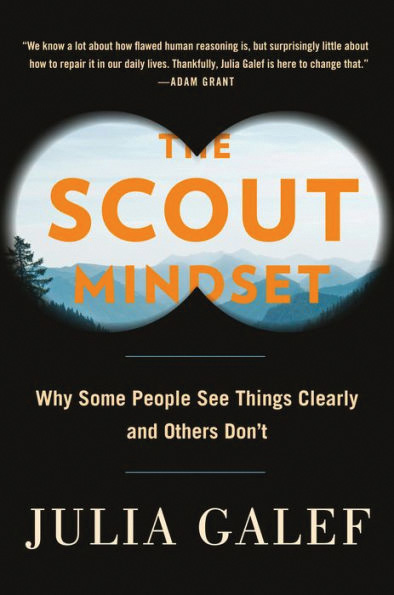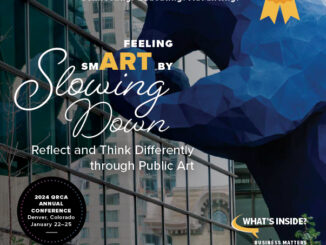Reviewed by Melanie B. Brewer, Santa Barbara Human Factors, Santa Barbara, California, melanie@sbhumanfactors.com
“The first principle is that you must not fool yourself—and you are the easiest person to fool.” This quote from Richard Feynman hangs over my desk, reminding me of the researchers’ mandate to remain unbiased and discover the truth. Studies on the inborn tendency of humans to fool ourselves, along with exhaustive lists of various human biases and fallibilities, have generated bestsellers for academic researchers/Nobel Prize winners Daniel Kahneman and Richard Thaler, but there have been fewer opportunities to read about the art of combatting them by consciously making our thinking more rational.
In The Scout Mindset: Why Some People See Things Clearly and Others Don’t, Julia Galef explains both the underlying reasons why we misjudge reality at times and how we can continuously reset our internal compasses toward a true perception of reality. Galef is the cofounder of the Center for Applied Rationality and host of a popular podcast, Rationally Speaking, and is well suited to write on this topic. The bonus is that she delivers a well-written, thought-provoking, and engaging book.
The Scout Mindset makes a strong case that we are hardwired to defend our opinions and stick to our beliefs, failing to update them when new facts emerge (soldier mindset). Even worse, knowledge and intellect are no defense against this tendency. Galef makes the interesting argument that humans may have developed this propensity to ignore inconvenient facts because of evolutionary benefits. It’s much harder to stay in the tribe when you are flouting the tribe’s orthodoxy.
The good news is that although no one is immune to the human impulses that can lead us astray and keep us entrenched in wrong beliefs (soldier mindset), we can learn how to continuously explore the terrain and develop the best possible map of reality (scout mindset). Throughout the book, Galef gives us a tool set to help make the shift from soldier to the scout mindset.
Galef’s tactics to reframe our beliefs about being wrong are masterful as she encourages the reader to stop thinking in terms of “admitting a mistake” to simply “updating our models” as new data emerge (inspired by probability theory and Bayesian statistics). In this framing, new data that disprove a previous opinion or data model do not lead to an ego-destroying admission of having failed, but rather a dispassionate update, or even a cheerful one. In the scout mindset, such updates are net positive because they move us closer to the truth.
Galef is not advocating, of course, for negligence in forming our opinions or data models. Instead, she provides a powerful tool set to arrive at the best analysis and decisions up front. She is a strong advocate for rational, scientific thinking and describes granular tactics for testing our instinctual responses by using thought experiments, bets, and confidence scores. Applying these methods can help us reexamine our initial responses and achieve the most accurate decision-making based on the information available.
Another inspiring idea that Galef champions is the concept of leaning into confusion instead of away from it. Using a vivid visual example, she shows how getting deeply curious about the very observations that are most contradictory to our current models of reality can unlock the entire puzzle. Thus, she reframes the unpleasant experience of feeling confused or experiencing cognitive dissonance into a way to spot opportunities to move forward into greater truth and understanding.
Galef convinces the reader that a more rational, open-minded approach leads to dramatically better outcomes. She emphasizes with examples that true success comes from updating your own beliefs and proving yourself wrong as frequently as needed to achieve the long-term outcome. She also makes the point that by explicitly acknowledging uncertainty, nuance, and complexity in a given situation, you will be perceived as more credible, trustworthy, and persuasive than the alternative.
In practice, adopting a scout mindset is harder than it sounds because it fights our natural instincts. Galef eases the path by leading readers through well-structured reasoning in which each chapter builds upon the next, increasing self-awareness and presenting practical techniques.




